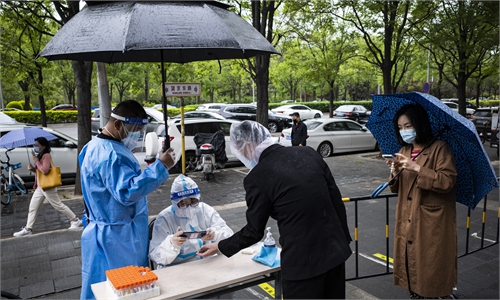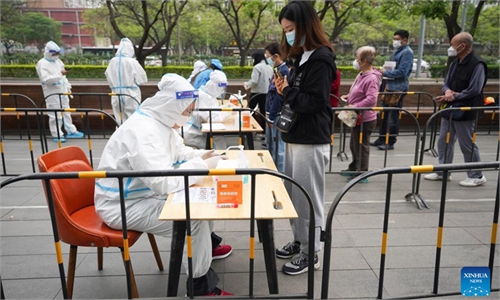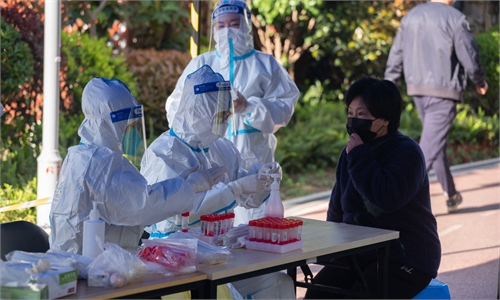Chinese cities move to normalize nucleic acid testing, to achieve a balance between coronavirus control, economic growth
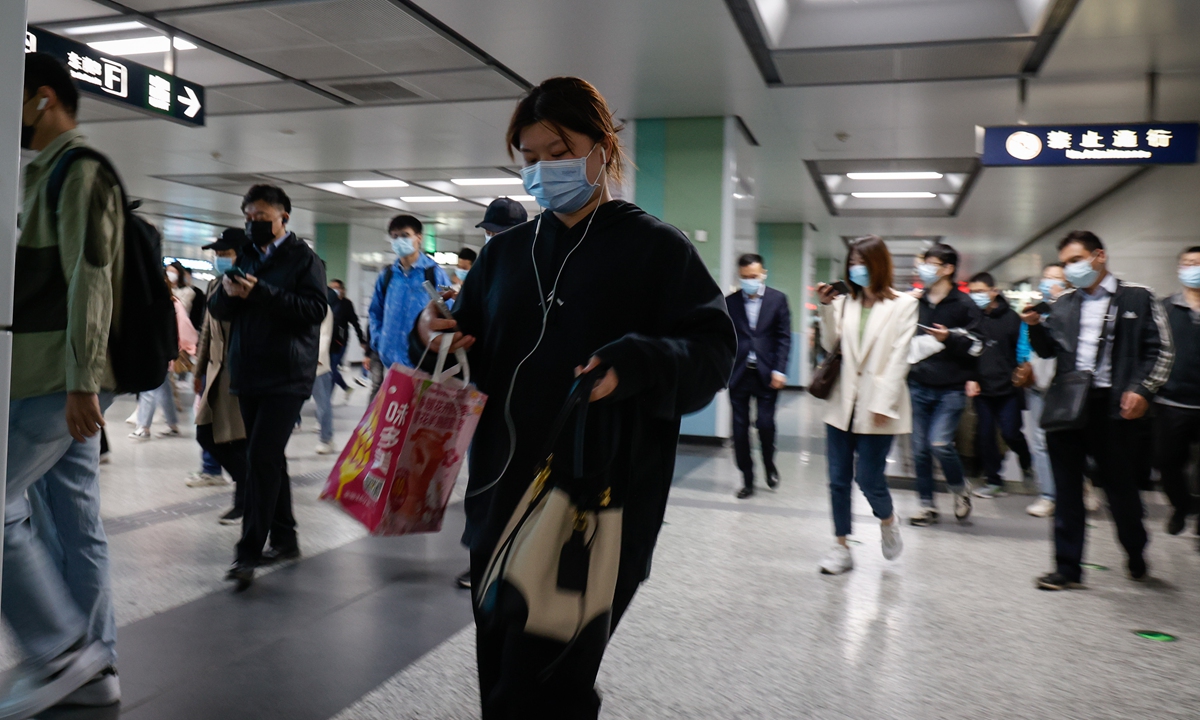
People ride the subway in Beijing, April 26, 2022. Photo: IC
In order to execute the "Dynamic zero-COVID" policy and effectively curb the risk of the Omicron variant, multiple Chinese metropolises including Beijing, Shanghai, Guangzhou and Shenzhen have issued new guidelines to normalize nucleic acid testing, while require proof of a negative test result for tourists and local residents in public venues and transport systems.
Analysts said the policies aim at dealing with the ongoing epidemic across the nation, and won't be a long-term if China effectively realize the dynamic zero-COVID and overcome the challenge of Omicron.
But since the Omicron variant is highly infectious, the normalization of nucleic acid testing will prove to be a measure to at least normalize or recover passenger transportation in the country amid the ongoing epidemic, and also to minimize impact on China's economy which has shown signs of a marked slowdown.
According to the Beijing Evening News on Saturday, the government of the capital city announced that starting from May 5, Beijing residents must provide proof of a negative nucleic acid test result taken within 7 days to enter public places and use public transportation systems, including the metro, the bus and the taxi systems.
For those who organize collective activities such as artistic performances or sport games, they're required to be responsible, and all participants need to test their temperatures and provide the proof of a negative nucleic acid test result taken within 48 hours, as well as a proof of full vaccination.
For places that require reservation such as museums, libraries and tourist sites, and other venues such as gyms, shopping malls, hotels and restaurants, people need to provide the proof of a negative nucleic acid within 7 days.
The Shanghai municipal government also announced a policy to lower the cost of nucleic acid tests for its residents on Saturday. From May 1, all public medical institutes will adjust the price for an individual nucleic acid test from 28 yuan to 25 yuan ($3.78). And from May 1 to June 30, Shanghai's normalized nucleic acid testing sites will provide test service for free.
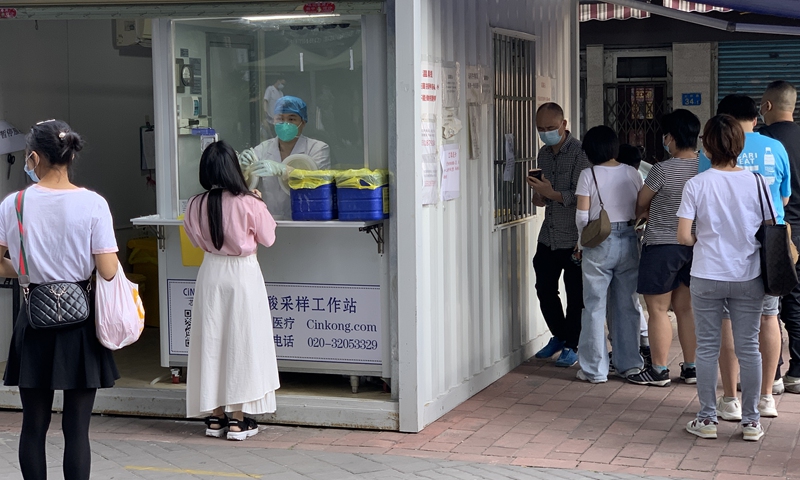
Residents take nucleic acid tests in Yuexiu district, Guangzhou, South China's Guangdong Province on April 10, 2022. Photo: VCG
Guangzhou, capital of South China's Guangdong Province, on Friday announced that all residents who intended to leave the city need to provide a proof of a negative nucleic acid test result taken within 48 hours. Shenzhen also required the same for those who want to use public transportation systems.
Wang Guangfa, a Beijing-based respiratory expert, told the Global Times that the normalization of nucleic acid testing is one way to handle the ongoing wave of the epidemic. "Obviously, many lessons have proved that if we don't take action as early as possible, the cost would be fairly high."
Although China has seen an increase of COVID-19 cases, in general, considering the population of China, the impact of Omicron remains low, and it's still controllable, said analysts.
The Chinese mainland on Friday reported 1,410 locally transmitted confirmed COVID-19 cases, of which 1,249 were in Shanghai, according to the National Health Commission's (NHC). The rest of the cases were reported in 14 other provincial-level regions, including Beijing, Guangdong and Sichuan. A total of 3,127 COVID-19 patients were discharged from hospitals after recovery on Friday, the NHC said Saturday.
Wang noted that the normalization of nucleic acid test only requires the people to provide proof of a negative test, and it doesn't cut off transportation so it's an act to balance the epidemic control and minimizing the impact on people's daily lives.
"This won't be a long-term policy because if China has successfully overcome the challenge of Omicron and realize dynamic zero-COVID, the normalization of test would be unnecessary. But while the Omicron is ongoing, the effective implementation of this policy could aid recovery of passenger transportation and economic activities," Wang said.
On the issue of reopening, Wang said it depends on different situations in various countries, because some countries don't do the test frequently and only cover a part of its population, Wang said, adding that a specific region's reopening needs to be conditional based on the control of the crisis.

